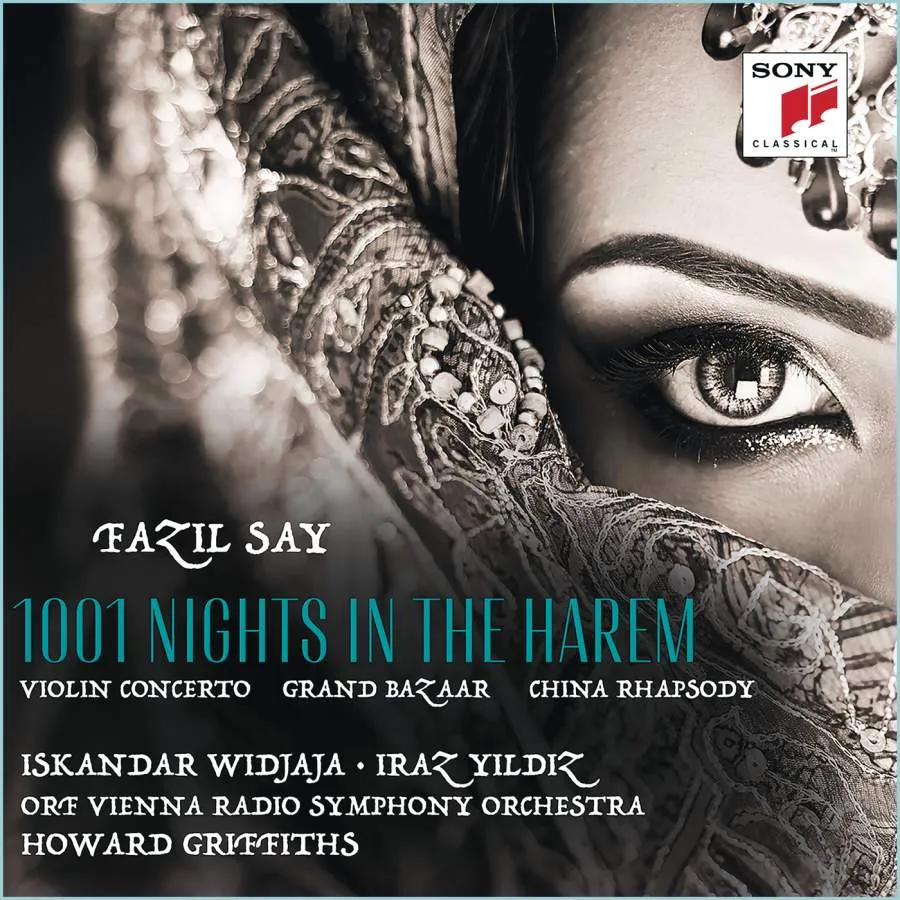
Fazil Say 1001 Nights in the Harem; Grand Bazaar; China Rhapsody Iskandar Widjaja (violin), Iraz Yildiz (piano); ORF Vienna Radio Symphony/Howard Griffiths Sony Classical 19075865732 60:24 mins
Pianist-composer Fazil Say creates epic soundscapes that combine traditional orchestration with instruments from his native Turkey, including kudüm and darbuka drums and the ney reed flute. Say also employs unusual techniques to make Western instruments evoke Middle Eastern ones. In the violin concerto 1001 Nights in the Harem (2007), written for Patricia Kopatchinskaja and performed here by Iskandar Widjaja, pizzicato effects turn the instrument into an oud. The work is not the first to be inspired by the Arabian Nights tales, of course: Rimsky-Korsakov based his symphonic suite Scheherazade on the popular story; Say’s version focuses particularly on the women within a harem. Widjaja impresses throughout, particularly in the cadenzas that link the first three movements.
Grand Bazaar (2015/16) conjures the vibrancy of the market, its highly rhythmic character neatly executed by the ORF Vienna Radio Symphony Orchestra under Howard Griffiths. This and the following China Rhapsody for piano and orchestra (2016) are premiere recordings; both works incorporate jazz-influenced elements in a manner reminiscent of Gershwin’s Rhapsody in Blue. If, at times, the music threatens to become pastiche, it remains enjoyable nonetheless.
There is some prepared piano in China Rhapsody (building on ideas heard in Say’s earlier work Black Earth, from 1997), which pianist Iraz Yildiz tackles with aplomb. It is these additional timbres, along with the cross-genre style of writing that give the music its distinctive colouring (think Bernstein, John Adams and, in a way, Karl Jenkins).
Claire Jackson